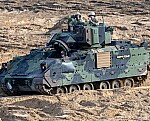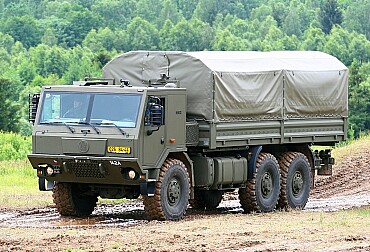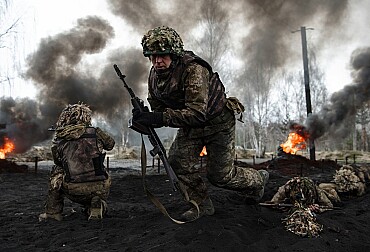Michael Doran: The war in the Middle East and American strategy one year on
The Middle East remains one of the key geopolitical regions whose stability impacts the entire world. The influence of the United States in this region and its role in the future was discussed at the event War in the Middle East: One Year On, which took place on October 24 at CEVRO University in Prague. The main guest was Michael Doran, an analyst at the Hudson Institute specializing in Middle East security issues. The event was moderated by Tomáš Pojar, National Security Advisor to Prime Minister Petr Fiala.

The United States and the Middle East: The constant struggle for stability
According to Michael Doran, the United States has long sought to maintain stability in the Middle East, although the approaches of individual U.S. administrations have varied. Doran explained that while Presidents Obama and Biden and Vice President Harris have emphasized diplomatic solutions to conflicts and avoided escalating tensions, the Trump administration instead openly identified Iran as the primary threat to the region. Trump’s approach, according to Doran, aimed to weaken Iranian influence and support Israel.
Doran further warned that the current U.S. approach toward Iran may affect the broader geopolitical balance in the region. He stated that the main challenge remains how to effectively limit Iran’s maneuvering room while maintaining strong relations with key allies in the region, such as Israel and Turkey.
Palestine, Israel and the Unsustainable Two-State Solution
One of the key points of discussion was the Israeli-Palestinian conflict. Michael Doran questioned the viability of a two-state solution, which some political circles in the United States continue to support. "A two-state solution is not realistic in this situation," Doran said. He added that the Israeli government sees the only viable path to ending the conflict as the complete defeat of Hamas.
He also highlighted a shift in Saudi Arabia's approach, noting that its crown prince is paying less attention to the Palestinian issue and focusing primarily on strengthening defense ties with the United States. This shift could impact not only the Middle East situation but also the dynamics of relations between Arab states.
U.S. presidential elections: What to expect from the next administration
Another important topic was the potential impact of the upcoming U.S. presidential election on American policy in the Middle East. According to Doran, the election results could fundamentally influence the future direction of U.S. strategy in the region. If Donald Trump wins, the United States could adopt a more supportive stance towards Israel while taking a tougher approach toward Iran. In contrast, Doran said, the Biden administration is moving towards recognition of a Palestinian state, which could result in diplomatic pressure and a potential weakening of relations with Israel.
“U.S. foreign policy in the Middle East will be crucial to the future development of the entire region,” Doran stated, adding that the 2024 elections could mark a turning point for the U.S. approach in this geopolitically sensitive area.
The United States will not repeat scenarios with troops on the ground
Doran noted that current U.S. foreign policy no longer envisions a direct military presence in the region, as in deploying “boots on the ground.” This shift, initiated by the Obama administration, reflects a new U.S. approach prioritizing diplomatic and economic methods to maintain its influence. This trend is apparent not only in the Middle East but also in other regions where the U.S. previously had a significant military presence.
Appreciation of Czech support to Ukraine
At the end of the discussion, Michael Doran also commented on the situation in Europe, particularly on Czech support for Ukraine in its conflict with Russia. According to him, the Czech Republic has played an important role in providing military assistance to Ukraine, especially through its ammunition initiative. "With this approach, the Czech Republic has shown that even a smaller country can contribute to solving global security issues," Doran said.
The future of the Middle East and the role of the United States
The outcome of the upcoming U.S. presidential election will significantly impact the future trajectory of the Middle East. Michael Doran emphasized that the United States should not abandon its strategic role in the region and should continue to strengthen its relations with key partners such as Israel and Turkey. The geopolitical situation in the region is still evolving, and the United States will play a crucial role in balancing regional interests with its global ambitions.










